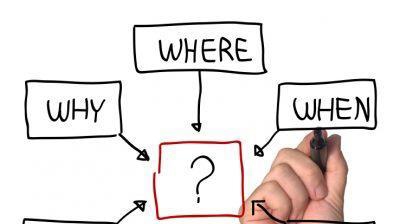Unlocking the Power of Transactional Analysis (TA) in Sales and Communication
Imagine improving your relationships, mastering conversations, and boosting sales—all by understanding how people think, feel, and respond. That’s the power of Transactional Analysis (TA), a psychological framework that plays a major role in the Sandler Selling System.
Developed by psychiatrist Eric Berne in the 1950s, TA provides a simple yet powerful model of how people communicate using different ego states: the Parent, the Adult, and the Child.
At Sandler, we use TA to better understand others and ourselves—because effective selling starts with meaningful human connection.
The Three Ego States: Parent, Adult, and Child
🔹 Parent Ego State
This ego state is shaped by authority figures and past experiences. It shows up as either:
Controlling Parent: sets rules, gives commands, criticizes
Nurturing Parent: protects, supports, gives encouragement
This part of us provides structure—but if overused, it can come off as rigid or patronizing in a sales conversation.
🔹 Adult Ego State
This is the ego state you want to operate from most often—especially in professional settings. It’s logical, calm, curious, and focused on fact-based problem solving. The Adult ego state:
Analyzes information
Makes reasoned decisions
Responds rather than reacts
When both seller and buyer engage from their Adult states, conversations are productive and respectful.
🔹 Child Ego State
This state is emotional, creative, impulsive, and vulnerable. It includes:
Free Child: playful, spontaneous, joyful
Adapted Child: rebellious or overly compliant in response to authority
The Child state helps us connect emotionally—but unchecked, it can lead to manipulation or reactivity.
Why Ego States Matter in Business and Sales
Every interaction—whether with a client, coworker, or prospect—is influenced by these ego states. For example:
A sales rep in Parent mode might push solutions too forcefully.
A buyer in Child mode might agree just to please, only to ghost later.
A productive sales conversation happens Adult-to-Adult, where both parties feel respected and heard.
The Power of "Strokes" in TA
One of TA’s core concepts is the idea of strokes—any unit of recognition, attention, or validation we give or receive:
Positive strokes: compliments, encouragement, gratitude
Negative strokes: criticism, sarcasm, passive aggression
People are wired to seek strokes—even negative ones if positive ones are lacking. Being intentional about giving positive, authentic strokes can improve rapport and strengthen relationships in both personal and professional settings.
TA in Action: Change Your Patterns, Change Your Results
TA helps identify negative communication loops and internal scripts like:
“I always screw this up.”
“Clients don’t respect me.”
“No one ever follows through.”
By recognizing the ego states and patterns at play, you can interrupt self-sabotaging behaviors, improve how you handle objections, and lead more constructive conversations.
Ready to Apply TA in Sales?
This is just the beginning.
In future blogs, we’ll explore how to apply TA:
When prospecting or cold calling
In sales negotiations
During team leadership or coaching
With clients and coworkers
And if you’re wondering how to put this into practice today…
💥 Crash a Class: See Sandler in Action
What would your business look like if you could double your client base in just 2 months?
Take the first step—Crash a Sandler Class and see how principles like Transactional Analysis can revolutionize how you sell and lead.






